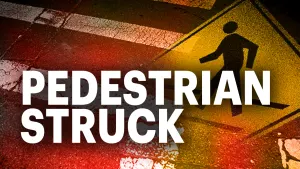More Stories
The New York City Department of Health confirmed Friday the first reported case of juvenile monkeypox in the city.
The confirmation comes as cases remain high across the boroughs as the city reports 2,888 cases as of Friday night.
While the city continues to roll out efforts to create vaccine accessibility, parents are simply on edge.
"When kids go home, you don't know what they're going home to, what kind of environment they're going home to," says concerned parent Elaida Ramos. "You don't know if other people are being as cautious as you are, you don't know what they might be bringing into the classroom with them."
New York City Department of Health Commissioner Dr. Ashwin Vasan said in a statement, “There is a juvenile case of MPV (or monkeypox) in New York City. While we understand the concerns of families, we also know that the overall risk of exposure for children in the city remains very low.”
Health officials say this first reported case of juvenile monkeypox was linked to a household contact.
Officials say that not all rashes or sores are monkeypox and can have many causes such as bug bites, pimples, allergic reactions and other infections.
Concerned families should have their children evaluated by a clinical provider for rash or illness.
This reported case comes just five days after the first juvenile case was reported in New York state. That report did not specify the child’s age or the county where the case was reported.
New York continues to lead the nation in monkeypox cases, as the country sees over 17,000 cases, according to the Centers for Disease Control and Prevention.
Ramos says there are nerves sending kids back to school -- from COVID-19 to kids getting a common cold. She says it's important for parents to stay vigilant.
"Do all you can to keep your children safe. Keep your mask on when you're in close proximity to other people and just make sure your children are wearing a mask in school," Ramos recommends.
According to the CDC, monkeypox prevention steps include:
- Avoiding close skin to skin contact with people who may have a rash.
- Avoiding contact with objects and materials that a person with monkeypox has used.
- Wash your hands often.
More from News 12
0:30

What to know about the Homeland Security shutdown
0:40

16-year-old boy seriously injured in Bay Shore crash
1:31

Suffolk County Girl Scout creates 'Community Ballet Collective' nonprofit
1:17

Man accused of stealing donation money from multiple Nassau County churches
2:10

STORM WATCH: Winter weather threat increasing for Long Island Monday
0:30
